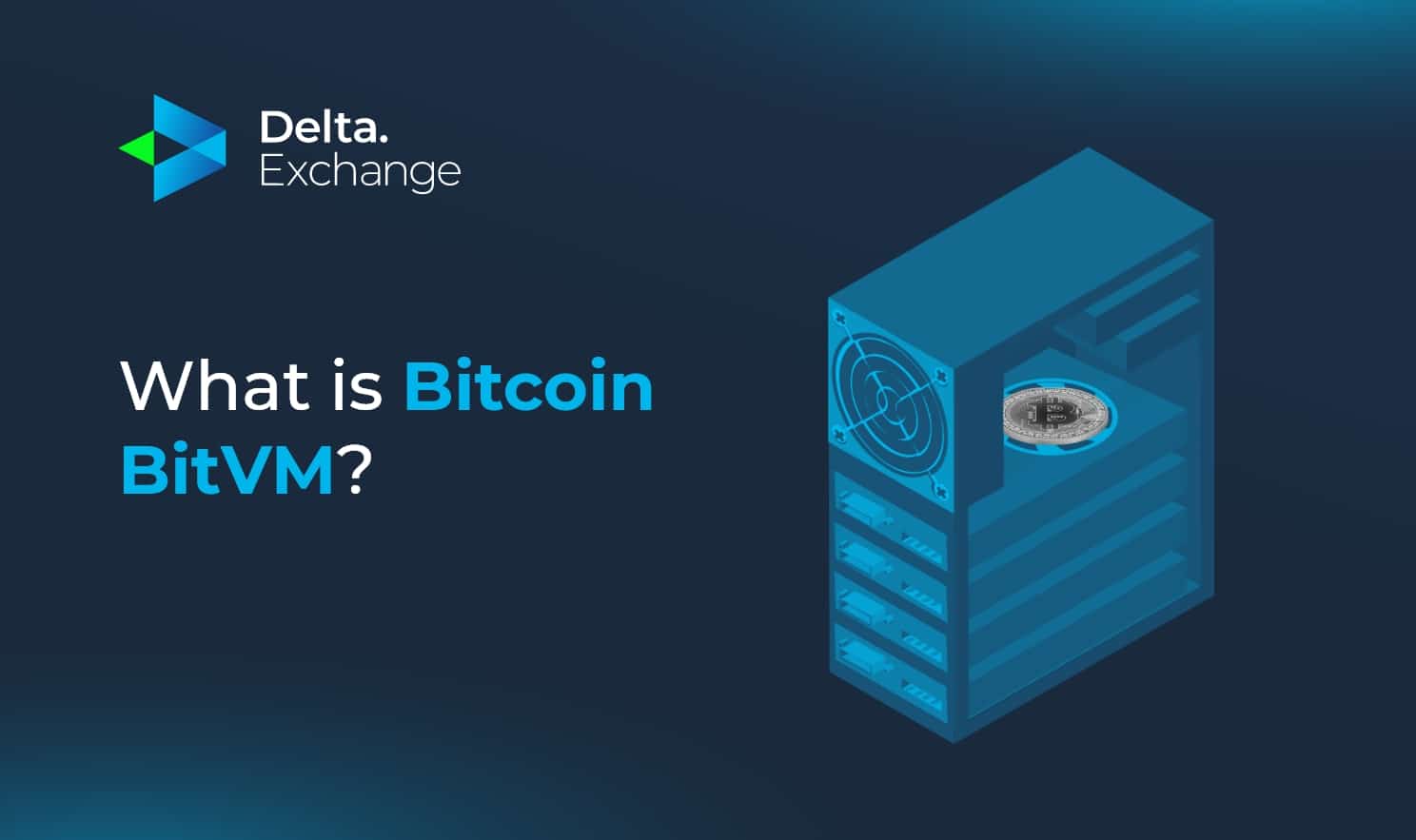Educational
March 19, 2024
Bitcoin BitVM: What is it all about?
Shubham GoyalProduct Specialist
Smart contracts in the Bitcoin network. Sounds interesting? That’s precisely why Bitcoin BitVM has been attracting a lot of notice from the community in recent months. The concept of Bitcoin Virtual Machine (BitVM) emerged from a paper authored by noted blockchain developer Robin Linus in 2023 titled ‘BitVM: Compute Anything on Bitcoin.’
Bitcoin BitVM is touted to revolutionize the Bitcoin network’s use cases. Let’s examine the subject in detail through this blog!
What Does Bitcoin BitVM Mean?
The Bitcoin Virtual Machine, or BitVM, is a concept that aims to expand Bitcoin’s functionalities without changing the original Bitcoin network. In his paper, Robin Linus defines BitVM as a ‘computing paradigm to express Turing-complete Bitcoin contracts.’
A modification in Bitcoin’s project protocol, or a fork, creates an entirely separate blockchain. Here’s where BitVM makes a difference. It enables the execution of smart contracts on Bitcoin by avoiding a fork. It essentially solves the scalability issue on the Bitcoin network by processing all complex computations off-chain, including smart contracts.
On the other hand, lowering congestion on the Bitcoin network could also decrease processing times or fees, which in turn could potentially lead to several use cases. However, when Linus published his paper, BitVM was limited to only two parties. In any dispute between the parties, on-chain execution on the Bitcoin network is required.
Wondering how the Bitcoin Virtual Machine works? Read ahead!
Working of Bitcoin BitVM
BitVM’s architecture enables transactions between the two parties called ‘prover’ and ‘verifier.’ As the names suggest, the BitVM system depends on a challenge-response protocol and fraud proofs. Let us go over it in detail.
The computation between the two parties is initiated by the prover, who also evaluates the smart contract and its expected result. On the other hand, the verifier authenticates the computation and checks its authenticity and accuracy.
Both parties also sign a series of transactions before the computation and make deposits into the smart contract. Once the smart contract is activated, any party attempting fraud loses their deposit while the other party receives it.
Dispute resolution between the two parties is done by executing conditions of the smart contract on-chain. Bitcoin’s on-chain validity checking mechanism penalizes both the prover and verifier if the former is fraudulent or if the latter rejects valid computations.
How Does BitVM differ from EVM?
The Ethereum Virtual Machine (EVM) acts as the core foundation of the Ethereum blockchain, executing all its smart contracts and processing transactions. Developers can also use EVM to create dApps and smart contracts.
Conceptually both BitVM and EVM could sound the same, but they have stark differences. Here are all the details about the ‘BitVM vs EVM’ debate:
- Firstly, BitVM can presently only handle computations between two parties. EVM is far more versatile, enabling multi-party transactions. As a result, relatively more complicated smart contracts can be executed on EVM.
- BitVM processes all transactions entirely off-chain, except in case of disputes. On the other hand, EVM leverages the Ethereum blockchain and conducts all transactions on-chain.
- The functionalities and goals of BitVM and EVM are entirely different. BitVM is an addition to the Bitcoin blockchain that reduces activity on the native network by executing off-chain computations. However, EVM acts as the key component for Ethereum, and it is central to the blockchain’s use case as a decentralized finance (DeFi) platform. Hence, ‘BitVM vs EVM’ has broadly precise explanations.
Can BitVM expand Bitcoin use cases?
BitVM can be instrumental in taking Bitcoin’s scope beyond its current use cases. One could create applications on top of Bitcoin using BitVM. All of it could be done without tweaking the Bitcoin network. In his paper, Robin Linus also argues that BitVM acts as a bridge between Bitcoin and other blockchain networks.
BitVM could provide a big impetus to apps related to the gaming sector, especially in two-way games like Chess or Poker. Moreover, the Bitcoin Virtual Machine’s smart contract functionality could induce use cases of advanced payment solutions involving big-volume transactions. It could mark a significant development for the Bitcoin network, which is only used for peer-to-peer payments currently.
Other two-party applications, such as DeFi apps, decentralized exchanges, and betting apps, could also be developed using BitVM. The efficiency and low-congestion model of BitVM could be used to hedge Bitcoin’s impact on the environment, giving rise to various environment-friendly use cases.
Over time, BitVM may continue to evolve and profoundly impact the crypto sector. Coupled with Bitcoin’s growing use cases with the help of BitVM, the crypto industry will likely see new innovative solutions in the near future!
FuturesTrade Futures & Perpetual Swaps on 25+ crypto assets, with up to 100x leverage
OptionsTrade call, put or MOVE options on BTC, ETH, BNB and LINK
Interest Rate SwapsInterest rate derivatives that enable swap of fixed-floating rates
Mock Trading PlatformLearn Crypto Derivatives trading without risking real capital
Research & AnalyticsExclusive data, charts and analytics to help you trade smarter









